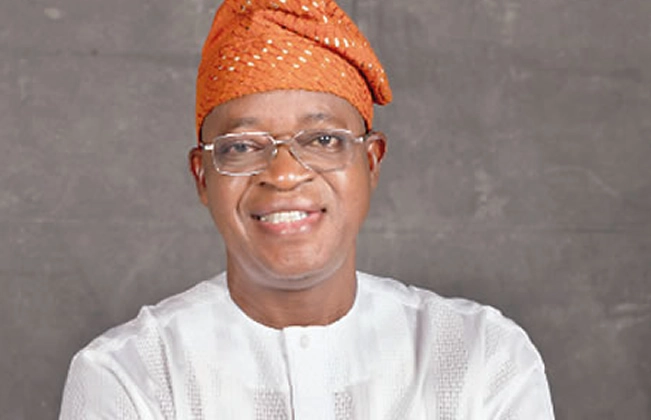
In August 2024, President Bola Tinubu appointed Mr. Adegboyega Oyetola as the pioneer Minister of Marine and Blue Economy.
The creation of the ministry is quite a relief for industry stakeholders who for so many years, have specifically clamoured for a maritime industry ministry. They had inched their demand on the belief that the ministry would enhance the sector and generally engender economic growth.
But their prayers were answered in a more than expected way. A dedicated ministry for marine and blue economy was created. Naturally, they expected much from the new ministry.
The fact is that the blue economy holds a great potential for the country. It represents the unfolding fact that Nigeria’s yet untapped potentials are enormous.
The Word Bank says the Blue Economy is the “sustainable use of ocean resources for economic growth, improved livelihoods, and jobs while preserving the health of the ocean ecosystem”.
In a very simple language, the blue economy encompasses all economic activities related to oceans, seas, and other bodies of water. These assets also include various sectors such as fisheries, aquaculture, maritime transport, renewable energy, tourism, and mineral resources.
Nigeria is no doubt, blessed with an extensive coastline and abundant water resources, and a huge potential within the blue economy.
Certainly, all the potentials in the nation’s vast blue economy had remained untapped. This is what the new Minister has been appointed to explore and exploit for the good of the nation.
We recall that about one year ago when he assumed duty, Oyetola had acknowledged the abundant marine resources existing in the country’s coastal region.
The minister also said he would promote better inter-agency cooperation and coordination between the Nigerian Maritime Administration and Safety Agency, Nigerian Ports Authority and Nigerian Inland Waterways Authority.
The Ministry, by its nomenclature is much bigger and deeper than maritime and shipping sector. It is a huge leap from the age-long concentration on ships, shipping and associated businesses.
As the minister in charge of this ministry, Oyetola was expected to move the nation out of the stereotyped and restrictive shipping and maritime business.
We agree with experts who have posited that, to achieve the objectives of its creation, the minister must know that blue economy must develop the Nigerian inland waterways, coastal shipping and revamp maritime logistics across the country.
Experts have also reminded whoever cares to listen that the focus should also be on renewable ocean energy, fisheries and aquaculture, safety of navigation, while building seaports and shipping; working on marine biotechnology research and development; enhancing marine tourism and cruise tourism; exploring offshore hydrocarbons and seabed minerals.
While we agree that, unlike some other Ministers who had their jobs cut out for them, Mr Gboyega Oyetola has had to learn the curves and eventually knit the traditional marine business with the equally and perhaps more lucrative blue economy.
About one year ago, this newspaper on this page, spelt out what we considered as agenda for Mr Oyetola. Sadly, most of these issues have remained unattended to.
There is no overemphasizing the fact the traditional maritime industry subsectors have their legion of challenges. The Minister actually needed to ‘redesign’ the ministry to align with the realities of the blue economy and the challenges to deliver on his mandate as the Minister in charge.
Shamefully, the ports are still in need of infrastructure upgrade. Almost all the ports facilities are old, dilapidated and lacking modern infrastructure. The management of the Nigerian Ports Authority had done its bit, by kick-starting the process of funds acquisition from multinational sources. The management of NPA has equally assured that there would be no problem with repayment of the loans from revenues earned by the agency.
Another issue for which stakeholders rate the minister low is the delayed renewal of the concessions of the various terminal operators at the ports. There are allegations of abuse and non-adherence to terms and conditions of the contractual agreements.
One area that ought to have received the minister’s attention since August 2023, is the need to pay attention to the numerous plights of Nigerian ship owners; especially, the need for disbursement of the Cabotage Vessel Finance Fund (CVFF). This would have been the simplest task to accomplish, if political will is there.
Nigerian seafarers are largely unemployed, because the fleet of ships owned by Nigerians have largely been depleted.
We had also advised that there was need to take a critical look at the National Seafarers’ Development Programme. It is a well-intended programme, but it is being abused and requires an overhaul.
However, if one looks at the peculiarities of the ministry, one may be obliged to empathise with him. But, No. He asked for the job, he got the job. So, he must do the job!
Yes, the minister points at the revenue generated by agencies like the NPA and NIMASA as his achievements. But we disagree. While it is true that earnings of the NPA and NIMASA grew from N126bn in the first quarter of 2023 to N242bn in the first quarter of 2024, but are these revenues attributed to the impact he had on the agencies. Is the ministry of marine and blue economy all about the earnings of NPA and NIMASA? If the minister thinks so, then he is far from understanding the mandate of the new ministry.
As we pointed out earlier, the creation of a dedicated ministry for marine and blue economy clearly signifies a leap forward from the stereotypical ministry of transportation that the nation has had for decades.
Honourable Minister of Marine and Blue Economy, your assignment is a lot more than what previous ministers had under the ministry of transportation. The earlier you get to work, with a clearer and more purposeful understanding of what the new ministry was created to achieve, the better for the government and the people of Nigeria.
It is a ministry that will play a major role in turning the economy around that is, if the minister understands the mandate!















